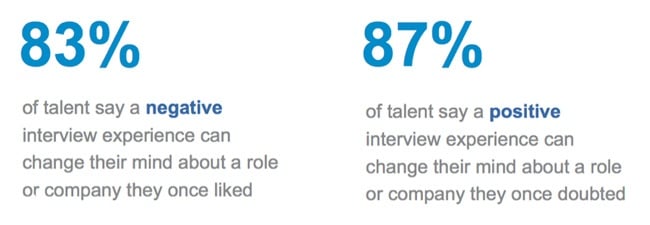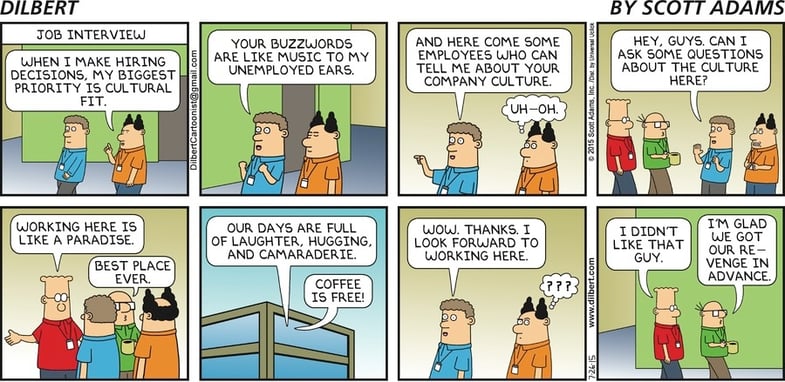A personal interview remains the most important part of hiring. Large organizations usually own a team of experts that work hard and put a lot of research on interview best practices for hiring managers. The well-structured interview processes help them evaluate various metrics and hire the desired candidate, but smaller companies usually lack this amount of time, resources, and research.
For SMEs hiring is mostly a seasonal activity and the onus of hiring the right person lies on the hiring manager and his hiring team. (I have observed this type of situation at departmental level of even large organizations)
Beware! An unstructured interview can lead to subjective evaluation based on biases and first impressions. Hence, it is very crucial to check out the interview guidelines for interviewers and shape it in a way that helps you find the right fit for the job and your team.
Here in this blog, I present 9 interview best practices for hiring managers to help them master the art of interviewing 101 for managers that will help you in overcoming your hiring challenges.
1. Find if candidate is a Job Fit

Ask the Problem-solving Question
Ask the candidate how he or she would solve a realistic job-related problem. Then get into a give-and-take discussion with the objective of understanding the process the person would use to solve the problem.
See if the person is able to understand the problem well and dig out the details of the approach the person uses to solve the problem. In such situations, the answer is less relevant than the process to solve the problem.
The best people in any job function have the ability to visualize a solution to a problem before they begin implementing it.
2. Find the candidate’s true motivation for this Job

Ask what the person is looking for in a new job and why those factors are important.
The candidate’s true motivation for the job should be a potential career move and not just a compensation hike. Strong people are willing to take less of a salary bump if the opportunity is compelling.
In order to hire the best candidates, you must follow interview guidelines for employers and position your job as a combination of job stretch, job growth, and a modest compensation increase.
3. Don’t ask out-dated questions
The days are gone when managers judged candidates with outdated questions like “What is your biggest weakness?” and outlandish questions like “which animal spirit are you?”
Though I personally enjoyed answering such questions during my early job interviews but I usually thought to myself “do these people seriously want to judge me with these off–center or outdated questions instead of finding out if I can actually do the job?”
Sadly, your favorite questions are very well-rehearsed and will hardly reveal much about the real capabilities of the candidates. Even the much-loved curve-ball questions have little or nothing to do with whether the person across the desk from you is a great hire.
Here is a good read from Beth Miller on how to frame your time-worn questions in better ways.
4. Try to know if a candidate is a quick learner?
The best hires learn quickly and become productive at a very early stage. It is very important to know how much time the new candidate will take to acclimatize to the new roles and responsibilities and starts taking on work challenges.
Here you can frame questions based on:
- Incidence where she has sought out more responsibility out of her comfort zone.
- Assigned any difficult technical or business problems before her peers.
- Biggest accomplishment achieved with the least amount of skills and experience.
Look for how the person learned new skills, overcame problems, made difficult decisions and achieved challenging results. The best people are consistently given bigger challenges far beyond what would be expected given their current level of skills and experience.
The answers to such behavioral questions will help you determine whether the candidate is a quick learner and becomes productive in the least of time. Collectively, this is a great indicator of how deep and fast a person can learn and achieve.
High-potential candidates get more done with less experience and master whatever skills are required faster than their peer group.
5. Find out if the candidate is a Go-getter?
During the interview, look for candidates who have the achiever pattern. Here you can look for some clues such as rapid promotions, being assigned to difficult projects ahead of their peers, any special recognition for extraordinary efforts etc are all signs of performers.
Questions you can frame here:
- Any chance to work with the senior management
- Assigned any leadership roles in multi-functional teams
- Any awards or recognition, etc.
6. Ask about most significant accomplishment
Ask the candidate about what he considers his most significant accomplishment so far; let him describe his team & his role. As part of the fact-finding associated with the most significant accomplishment question,
See if the candidate implements a logical process of figuring out the current situation and what he needed to do to get to the end goal. Carefully dig out how he figured out the problem and put a plan together.
The finer details of his story would clearly indicate the candidate’s ability and potential.
7. Don’t base your hiring decisions on first impressions or intuitions

Poor Dilbert! But you don’t bias your hiring decisions like Tina just did. You can miss hiring top performers who are temporarily nervous or don’t meet your expectations of friendliness and appearance.
If you go by first impressions you may end up hiring people who make great first impressions but are not competent.
Hence, force yourself to delay any possible yes or no decision until you review the person in-depth.
8. Candidate Experience
The best candidates also evaluate you during the interview. They assess the vision & quality of the hiring manager, the team they will be working with, culture, compensation, benefits and the job with respect to their career path.
As a result, everyone that participates in the interviewing process should devote some time to address these topics, sell the opportunity, and ensure that the candidate experience is a good one for the interviewee.
See what does Talent Trends Survey conducted on over 20, 000 Talent Professionals reveals about candidate experience during interview:

Now once again some food for your good mood :-)

9. Save your Time, Use Pre-employment Skills Testing
Lots of your interviewing time can be saved with pre-hire skills assessment that can evaluate the candidates skills. Choose reliable recruitment testing software that can filter applicants quickly based your desired skills. This way you get to spend your time talking to the right candidates during the interview. Conclusion:
Conclusion:
So, these were some of the important interview best practices for hiring managers but your judgement of candidate as right-fit & competent with respect to the job is very crucial as it will decide the fate of the candidate as well as the fate of your company.
Try to implement these tips and other crucial interview guidelines for employers in your next interview, corroborate first impressions, and hire the top performers. With careful practice you will make a habit of taking more reasonable hiring decisions.
Happy Interviewing!!!


